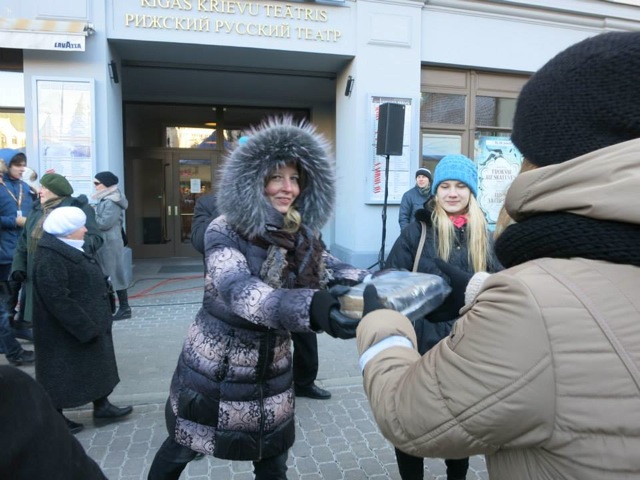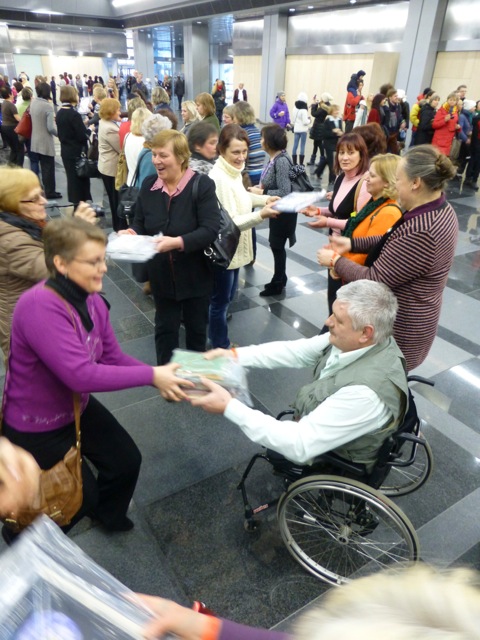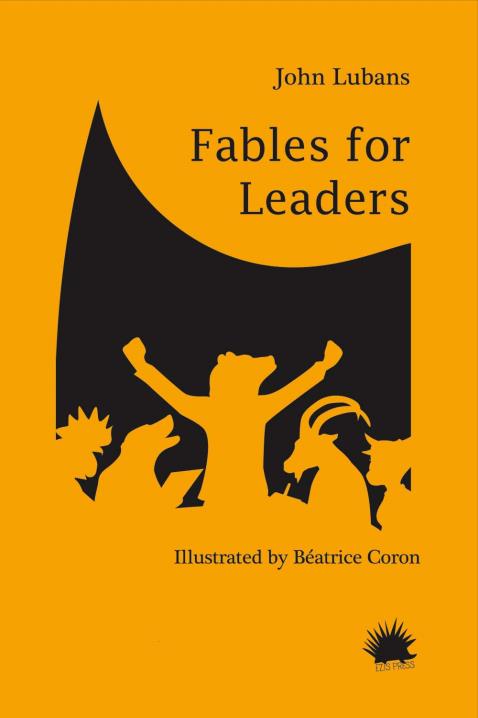*I’m back in Latvia; about a week now.
Riga’s cold weather with freezing wind and a dusting of snow reminds me of a largely spontaneous event from a little over a decade ago:
The Friends of Books Chain (Grāmatu draugu ķēde) () on January 18, 2014.
My wife and I took part along with thousands of others.
Below is a slightly edited version of what I had to say about this remarkable coming together of people, young and old, on a bitingly cold day to move thousands of books - by hand - from the old National Library to the new, winding through Riga’s old town and crossing the 160 yards
wide Daugava river. In total, a distance of 2 kilometers (about 1.2 miles).
While here, I will be interviewing the principal organizer of the book chain and asking for her reflections – How did it come to be – whose idea was it? What went well, what did not?, Did you have a plan B (What if there were no turnout of volunteers)?, Was there a worse case scenario?
As the joyous day ended, what were your thoughts?
What did you learn about your own leadership and that of others? And so on.
I’ll publish the interview here, probably in March
--------------------------------
Why was I in Riga? After my Fulbright year in Riga, I was invited to teach at the University of Latvia my 8-week class on the Democratic Workplace. I arrived two weeks early in order to get over jet lag and, more importantly, to participate in the Friends of Books Chain on January 18.
The book chain was reminiscent of the 1989
Baltic Way, a cry for freedom (with people linking hands from Tallinn, Estonia to Riga, Latvia to Vilnius, Lithuania, distance of 372 miles or 598 kilometers).
The January 18 chain
moved books, plastic encased, from the Old National Library to the new National Library (The Castle of Light) from the City Center, along the cobble stone streets of Old Town and across the Old Stone Bridge to the nearly complete new building slumbering on the left bank of the River Daugava, a distance of 2 kilometers (about 1.2 miles).
 Caption: The first book in the chain - The (Latvian language) Bible of the Lambsdorff family (1825) reaches Līvu square. Photo by Ināra Kindzule.
Caption: The first book in the chain - The (Latvian language) Bible of the Lambsdorff family (1825) reaches Līvu square. Photo by Ināra Kindzule.
Slumbering no more!
 Caption: A bridge not too far. The Castle of Light in the distance across the Old Stone Bridge early January 18. Photo by John Lubans*
Caption: A bridge not too far. The Castle of Light in the distance across the Old Stone Bridge early January 18. Photo by John Lubans*
Forget the -17 Centigrade (1 or so in Fahrenheit), Latvians of all ages and Estonians and Lithuanians and even a few Americans came out and waited and waited and handled books, and sang folk songs and wept happy tears as the first book entered the new building and made its way through a multitude of hands up to the display shelves towering above the main floor.
 Caption: Inside the new library, looking up at the marvelous soaring display for the incoming books .
Caption: Inside the new library, looking up at the marvelous soaring display for the incoming books .
What struck me most of all was how the Latvian organizers and planners responded to the enthusiasm of people wanting to take part. If you were not registered, that was OK. Join us!
Want to sing? By all means! Want to dance? Dance!
Indeed the towering speaker systems at the start and end and along the way boomed out rock and roll in American and Latvian, engaging and warming.
While planned for months, those plans changed at the last minute. (There is something we could call, the
unplanned!) The extreme cold tossed in a wrench, as did the question of building occupancy, of allowing anyone into the yet unfinished building. This was exacerbated by the painfully fresh memory of the November 21, 2013
Zolitudes tragedy of a shopping center’s collapse in Riga in which 54 died.
Public tours were planned and hundreds of librarians, taking turns, were to complete the chain inside the library. The fire marshal said no.
Up to the last minute, several government agencies haggled over the terms of admission. One temporary resolution was to let the books into the building but no public tours, a guaranteed public relations failure.
Fortunately - if only for warmth - the public was allowed into the first floor.
As for the kede, the chain, the books traveled in fits and starts – there were bottlenecks. After I snapped this picture of the first book, a few more came by, but then no more books.
 Caption: The first book (dead center) makes its way across the bridge, only 100 meters more to go!
Caption: The first book (dead center) makes its way across the bridge, only 100 meters more to go!
We waited, patiently, spirits still high, unaffected by the cold - a pop-up tea tent provided hot tea - however ephemeral - which bolstered our spirits.
 Caption: Waiting for the next batch.
Caption: Waiting for the next batch.
And when the books re-appeared on the horizon, we were back on task.
Books were treated with respect. Perhaps too much respect, as some of the bottlenecks were certainly caused by participants, one pictured below, examining each and every cherished title.
 Caption: On the access road to the Old Stone Bridge, a colonel browsed every book; an advertisement for the love of reading!.
Caption: On the access road to the Old Stone Bridge, a colonel browsed every book; an advertisement for the love of reading!.
 Caption: Nearby the colonel, a young person in pink joins soldiers in camo.
Caption: Nearby the colonel, a young person in pink joins soldiers in camo.
There was a self-organizing element among the 14,000 participants. With minimal instruction, they created two rows and passed the books back and forth. If there were not enough people for two rows, one sufficed.
 Caption: Inside the library, the lines sang and sang.
Caption: Inside the library, the lines sang and sang.
 Caption: Book friends clasped hands and went up on the bridge to take the next shift in the chain, dozens pouring past me.
Caption: Book friends clasped hands and went up on the bridge to take the next shift in the chain, dozens pouring past me.
There appeared to be the right mix of guidance by the organizers, certainly nothing heavy-handed or verboten!. It was as if the operational guidance, when needed was “accommodate, accommodate, don’t deny, don’t deny”.
What does it take to involve so many different perspectives on libraries, books and reading? Trust was apparent that the many would do what was right, not harm any book, but to honor each book, as it was meant to be.
The last book, randomly (and highly apropos) selected, of the 2000 volumes that were sent from the Old to the New was, : “Balandnieki” by Pēteris Upenieks – a book about the Catholic Suiti community in Western Latvia, one part of Latvia's folk or ethnographic movement.
 Caption: Ināra Kindzule (librarian and former student) holds a book with the title in English: "I was there." Photo from Ināra Kindzule.
*Unless stated otherwise, all photos are by the author.
___________________
Caption: Ināra Kindzule (librarian and former student) holds a book with the title in English: "I was there." Photo from Ināra Kindzule.
*Unless stated otherwise, all photos are by the author.
___________________
ONLY a click away, a last gasp for Valentine's Day:

And, my book on democratic workplaces and what leaders can do with limited resources and unlimited imagination,
Leading from the Middle, is available at Amazon.
Copyright John Lubans 2014 and 2025























